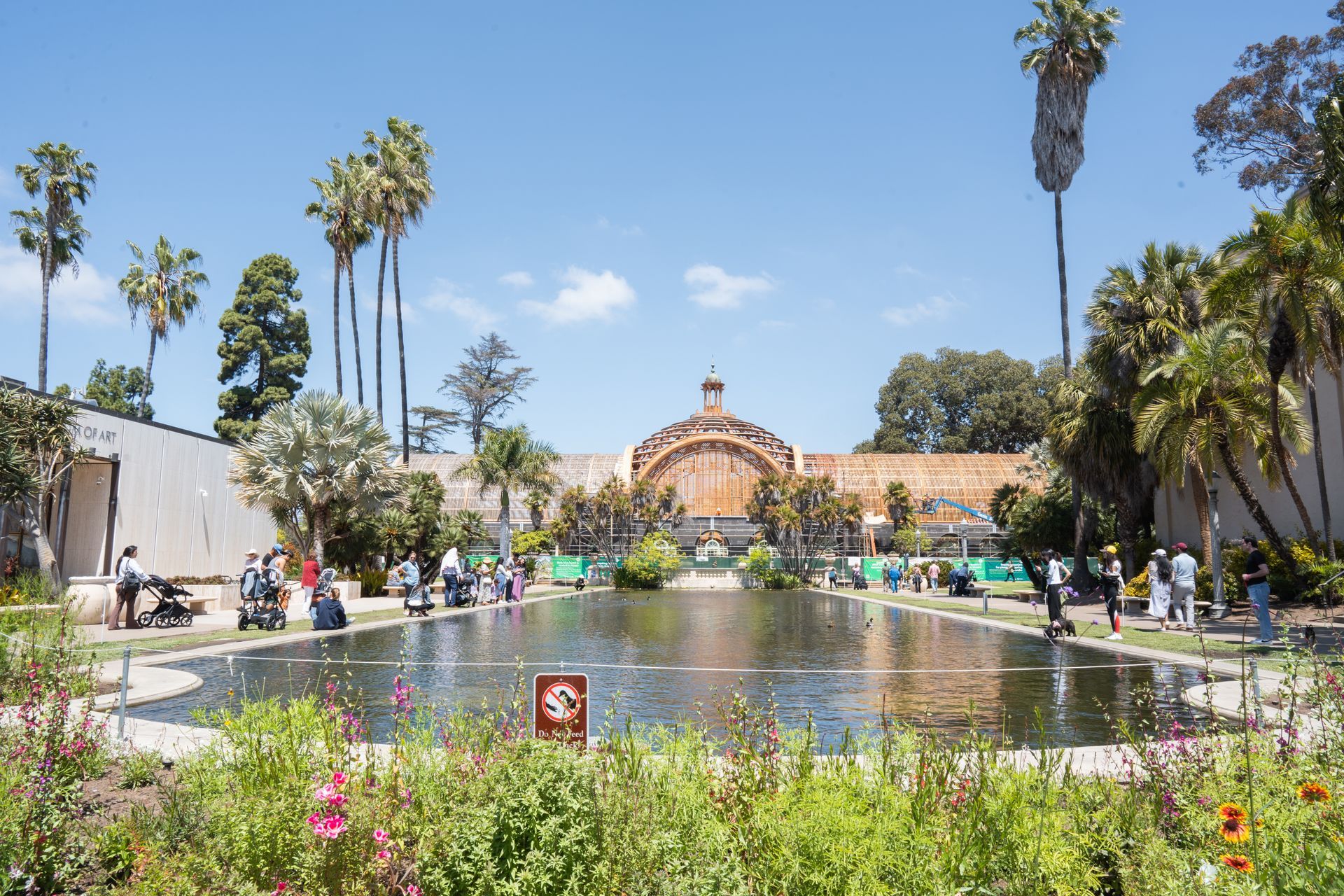Smart Irrigation: Efficient Water Management for CA Landscaping
Smart Irrigation: Efficient Water Management for CA Landscaping

In California, where water scarcity is a significant concern, adopting smart irrigation practices is essential for commercial landscaping maintenance. Smart irrigation systems utilise technology to optimise water usage, reduce waste, and promote sustainable landscapes.
This article explores the benefits of smart irrigation and its role in efficient water management for commercial properties in Vista, San Marcos, and Carlsbad, CA.
Understanding Smart Irrigation:
Smart irrigation refers to using technology, such as soil moisture sensors, weather forecasts, and programmable controllers, to deliver the right amount of water to landscapes based on real-time conditions.
By monitoring factors like soil moisture levels and weather patterns, smart irrigation systems adjust watering schedules to ensure plants receive adequate moisture while minimising water waste.
Importance of Efficient Water Management:
Conservation of Water Resources:
- Efficient water management practices help conserve limited water resources by minimising wastage and optimising usage.
- Conserving water is essential to ensure a sustainable supply for various purposes, including agriculture, industry, and domestic use.
Cost Reduction:
- Implementing efficient water management techniques can lead to significant cost savings for individuals, businesses, and governments.
- Reducing water consumption and minimising wastage can lower expenses related to water supply, treatment, and distribution.
Environmental Sustainability:
- Efficient water management contributes to environmental sustainability by reducing the strain on ecosystems and natural habitats.
- By using water more wisely, we can help protect aquatic biodiversity, maintain water quality, and preserve ecosystem health.
Mitigation of Water Scarcity:
- In regions facing water scarcity or drought conditions, efficient water management is essential for mitigating the impacts and ensuring a reliable water supply.
- By optimising water usage and implementing conservation measures, communities can better cope with periods of low rainfall or water stress.
Adaptation to Climate Change:
- As climate change alters precipitation patterns and exacerbates water scarcity, efficient water management becomes even more crucial.
- By adapting to changing climate conditions and implementing sustainable water practices, communities can become more resilient to climate-related challenges.
Sustainable Development:
- Efficient water management is integral to sustainable development, supporting economic growth, social equity, and environmental protection.
- By prioritising water efficiency and conservation, societies can achieve development goals while safeguarding natural resources for future generations.
Benefits of Smart Irrigation:
a. Water Conservation: Smart irrigation systems optimize water usage by delivering water directly to plants' root zones when needed, reducing runoff and evaporation.
b. Cost Savings: By minimising water waste and optimising irrigation schedules, businesses can lower their water bills and save money on irrigation-related expenses.
c. Environmental Sustainability: Smart irrigation promotes environmental stewardship by conserving water resources and minimising the risk of overwatering, which can lead to soil erosion and nutrient runoff.
d. Improved Plant Health: Smart irrigation systems provide plants with the right amount of water at the right time, supporting healthy growth and reducing the risk of water-related stressors such as root rot and fungal diseases.
Components of Smart Irrigation Systems:
a. Soil Moisture Sensors: These devices measure soil moisture levels and transmit data to the irrigation controller, allowing for precise watering based on plant needs.
b. Weather-Based Controllers: Weather-based controllers adjust irrigation schedules based on local weather forecasts, considering factors like rainfall, temperature, and humidity.
c. Drip Irrigation: Drip irrigation systems deliver water directly to plant roots through tubes and emitters, minimising water loss through evaporation and runoff.
d. Smart Controllers: Smart controllers use advanced algorithms to analyse environmental data and adjust watering schedules accordingly, optimising water usage and promoting plant health.
Implementing Smart Irrigation:
Discuss steps for businesses to implement smart irrigation systems, including conducting a site assessment, selecting appropriate components, and hiring qualified professionals for installation and maintenance.
Conclusion:
In conclusion, smart irrigation offers numerous benefits for commercial landscaping maintenance in Vista, San Marcos, and Carlsbad, CA. By adopting efficient water management practices, businesses can conserve water, save money, and promote environmental sustainability while maintaining attractive and healthy landscapes.
How can coast landscaping help you with landscaping maintenance and commercial landscaping service?
Coast Landscaping offers professional landscaping maintenance and commercial landscaping services in Vista, San Marcos, and Carlsbad, CA.
With our expertise in smart irrigation technology and sustainable landscaping practices, we can help businesses conserve water, reduce maintenance costs, and maintain beautiful and environmentally friendly landscapes.
Contact us today to learn more about our services and how we can assist you with your landscaping needs.
FAQs:
Q: What are the main benefits of smart irrigation for commercial landscaping maintenance?
Smart irrigation systems conserve water, save money on utility bills, promote environmental sustainability, and support healthy plant growth.
Q: How does smart irrigation work?
Smart irrigation systems use soil moisture sensors, weather-based controllers, and drip irrigation to optimise water usage based on real-time environmental conditions.
Q: Are smart irrigation systems suitable for all types of commercial properties?
Yes, smart irrigation systems can be customised to meet the specific needs of various commercial properties, including office buildings, shopping centres, and industrial parks.
Q: What is a smart irrigation management system?
A smart irrigation management system is a technology-driven approach to watering landscapes efficiently. It typically includes components such as soil moisture sensors, weather-based controllers, and drip irrigation systems.
These systems use real-time data on soil moisture levels, weather forecasts, and plant water requirements to adjust irrigation schedules, optimise water usage, and minimise waste.
Q: What is the meaning of water-efficient landscaping?
Water-efficient landscaping refers to the design, installation, and maintenance of landscapes that minimise water usage while maintaining aesthetic appeal and functionality.
It involves selecting drought-tolerant plants, using efficient irrigation systems, incorporating mulch to retain moisture, and practising soil conservation techniques to reduce water waste and promote sustainability.
Q: What is the most water-efficient irrigation system?
Drip irrigation is widely considered the most water-efficient irrigation system. In drip irrigation, water is delivered directly to the base of plants through a network of tubes and emitters, minimising water loss through evaporation and runoff.
This method allows for precise water application, ensuring that plants receive the right amount of water while minimising waste.
Q: Which irrigation method is best for water conservation?
Several irrigation methods can contribute to water conservation, but drip irrigation and micro-irrigation systems are among the best options. These systems deliver water directly to plant roots, reducing evaporation and runoff.
Additionally, techniques such as soil moisture sensors and weather-based controllers can further enhance water conservation efforts by optimising irrigation schedules based on real-time environmental conditions.













